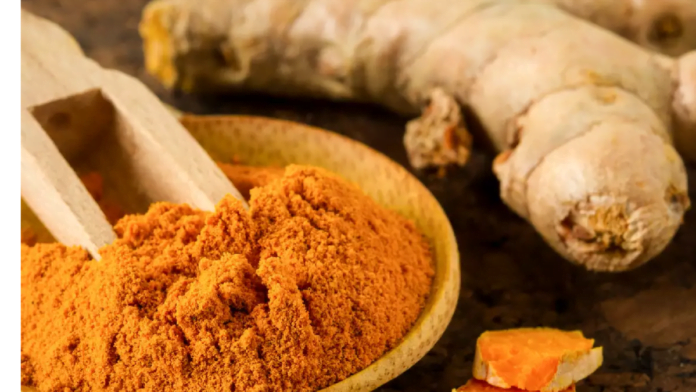Commonly referred to as the “golden spice,” turmeric is well known for its beneficial effects on health, especially on the stomach. For generations, traditional medicine has utilized the bright yellow spice that is extracted from the root of the Curcuma longa plant. Turmeric’s potent medicinal benefits are attributed to curcumin, the main active ingredient.
People who suffer from inflammatory bowel conditions, such as Crohn’s disease and ulcerative colitis, may find this very helpful. Furthermore, Ms. Shivani Bajwa, a Functional Medicine Expert, informed us that “turmeric has been shown to increase the production of beneficial bacteria in the gut, promoting a healthy balance of gut flora” when we asked her about the advantages of turmeric for gut health. Here’s how turmeric can be a powerful digestive healer:
Properties that Reduce Inflammation
The anti-inflammatory qualities of turmeric are one of its main advantages. A number of digestive disorders, such as Crohn’s disease, ulcerative colitis, and irritable bowel syndrome (IBS), can be brought on by persistent inflammation in the gut. Turmeric’s curcumin, which inhibits the function of molecules like NF-kB, a crucial player in chronic inflammation, and blocks inflammatory pathways, helps lower inflammation.
Effects of Antioxidants
An additional strong antioxidant is turmeric. Cell damage is the result of oxidative stress, which happens when the body’s levels of antioxidants and free radicals are out of balance. The gut lining and general digestive health may be impacted by this stress. The antioxidant enzymes in the body are activated and free radicals are neutralized by curcumin, which protects the tissues and cells of the stomach.
Improves Digestion
The gallbladder is stimulated by turmeric to create bile, which is necessary for the breakdown of lipids. This increase in bile production can lessen bloating, ease stomach symptoms, and enhance digestion. Turmeric ensures that nutrients are taken more effectively by improving digestion, which supports gut health in general.
Helps the gut micro biome
The complex population of bacteria that reside in the digestive tract is known as the gut microbiome. Immune system performance, digestion, and general health all depend on a healthy gut microbiota. It has been demonstrated that curcumin inhibits the growth of pathogenic bacteria while promoting the growth of helpful bacteria. Maintaining a healthy gut flora is crucial for both preventing and treating digestive diseases, and this balancing act helps to achieve that.
Safeguards the lining of the stomach
While permitting nutrients to pass through, the stomach lining serves as a barrier against dangerous chemicals. A condition known as “leaky gut,” where toxins and bacteria can enter the circulation and cause inflammation and other health problems, can result from this barrier being damaged. By lowering inflammation and encouraging the regeneration of gut cells, turmeric aids in the protection and healing of the intestinal lining.
Relieves Symptoms of IBS and IBD
Both Inflammatory Bowel Disease (IBD) and Irritable Bowel Syndrome (IBS) are prevalent digestive illnesses that impair quality of life and cause discomfort. Studies have demonstrated that curcumin helps lessen inflammation, ease stomach discomfort, and facilitate better bowel motions in order to assist relieve the symptoms of various illnesses. It also helps with symptom relief because of its capacity to alter gut flora and enhance the function of the gut barrier.
Covers the lining of the stomach
While permitting nutrients to pass through, the stomach lining serves as a barrier against dangerous chemicals. A condition known as “leaky gut,” where toxins and bacteria can enter the circulation and cause inflammation and other health problems, can result from this barrier being damaged. By lowering inflammation and encouraging the regeneration of gut cells, turmeric aids in the protection and healing of the intestinal lining.
Reduces IBS and IBD Symptoms
Both Inflammatory Bowel Disease (IBD) and Irritable Bowel Syndrome (IBS) are prevalent digestive illnesses that impair quality of life and cause discomfort. Studies have demonstrated that curcumin helps lessen inflammation, ease stomach discomfort, and facilitate better bowel motions in order to assist relieve the symptoms of various illnesses.
How to Put Turmeric in Your Meal Plan
It’s simple and possible to include turmeric in your diet in a few different ways:
- A warm, calming beverage known as “golden milk” is created with turmeric, milk (or a plant-based substitute), and seasonings like ginger and cinnamon.
- To make turmeric tea, just steep fresh turmeric roots or powder in boiling water and then taste and add honey and lemon.
- You may use turmeric into smoothies, curries, stews, and soups.
- There are supplements containing turmeric and curcumin, however it is advisable to speak with a doctor before beginning any new supplement regimen.



